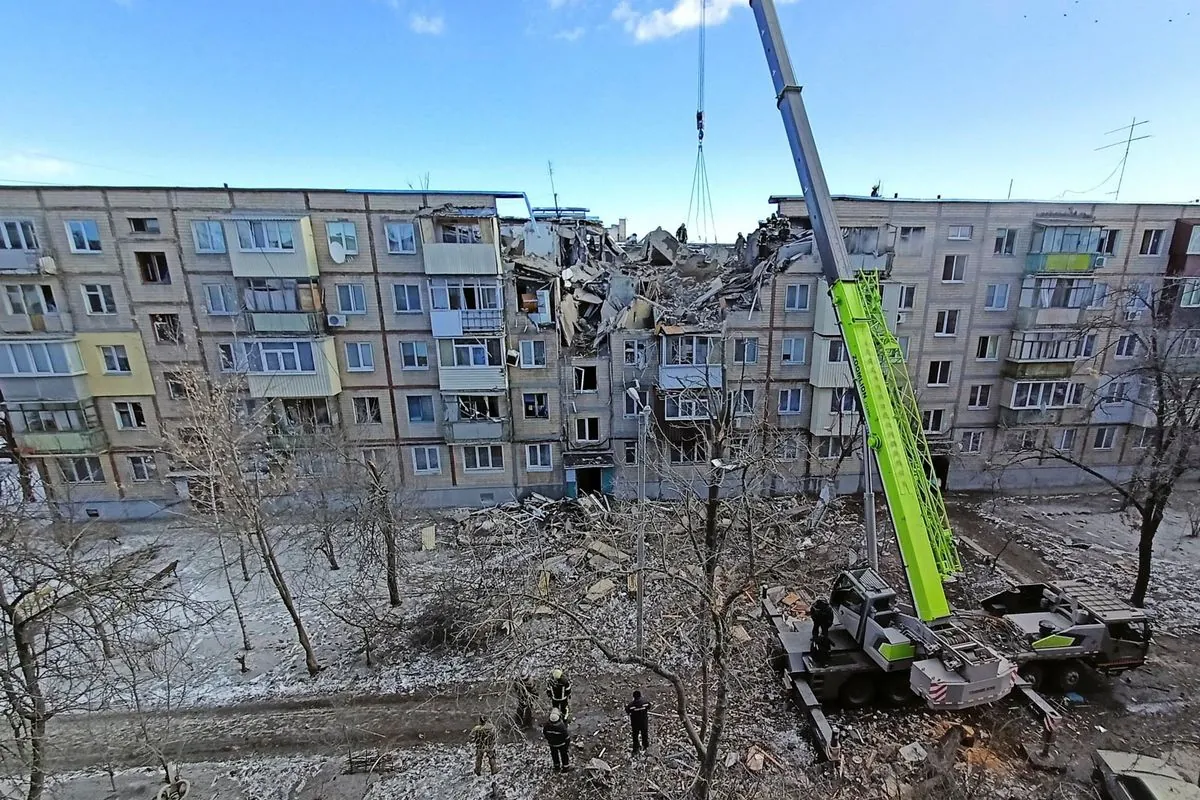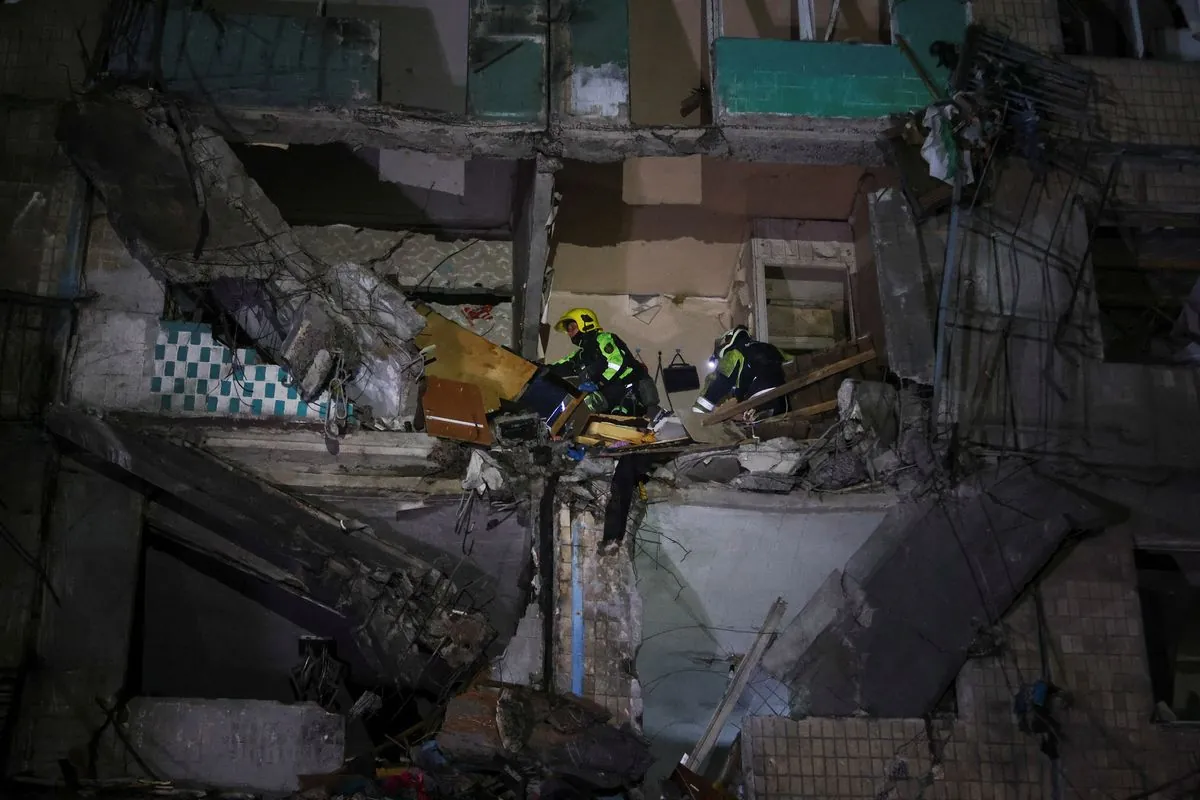Kharkiv Apartment Block Hit by Russian Glide Bomb, Injuring 12
A Russian glide bomb struck a Kharkiv apartment building, injuring 12 including a child. The attack highlights Ukraine's urgent need for increased Western support as Russia gains ground in the ongoing conflict.

In a recent incident highlighting the ongoing conflict in Ukraine, a Russian glide bomb targeted a residential building in Kharkiv, causing injuries and significant damage. The attack on Ukraine's second-largest city, located approximately 30 kilometers from the Russian border, resulted in at least 12 casualties, including a 3-year-old girl.
The glide bomb, an increasingly common weapon in the conflict, struck between the third and fourth floors of a five-story apartment block. The impact ignited fires, prompting immediate response from firefighters who searched for survivors amidst the smoke and debris. Oleh Syniehubov, the regional governor of Kharkiv, confirmed the details of the attack.

Kharkiv, a city with a rich history dating back to its founding in 1654, has been a frequent target of aerial assaults throughout the war. Once the capital of Soviet Ukraine from 1919 to 1934, the city now finds itself on the frontlines of a conflict that has entered its third year. With a population of approximately 1.4 million, Kharkiv remains a major industrial center and home to numerous universities and research institutions, making it a strategically significant target.
The use of glide bombs has become a hallmark of recent Russian military tactics. These weapons, first developed during World War II, use wings to descend on targets and can be guided using GPS or laser designation. Their ability to be launched from a greater distance than unguided bombs has made them particularly effective in terrorizing civilians and overwhelming Ukrainian front-line defenses.
The attack on Kharkiv coincided with Russia's capture of Vuhledar, a small city in the Donetsk region known for its coal mining industry. This tactical gain for Russian forces underscores their ongoing efforts to consolidate control in eastern Ukraine, an area partially held by Russian-backed separatists since 2014.
Volodymyr Zelenskyy, the President of Ukraine, emphasized that the Kharkiv attack further demonstrates the urgent need for increased support from Western allies. Ukraine has been grappling with critical manpower shortages on the front lines and struggling to repel Russia's relentless assaults. The situation has become particularly challenging since late 2023 when a Ukrainian counteroffensive aimed at recapturing occupied territories lost momentum.
"This attack on Kharkiv civilians underscores the critical need for enhanced support from our Western partners. We must strengthen our defenses to protect innocent lives."
The conflict continues to see regular cross-border aerial attacks from both sides. Ukraine's air force reported intercepting 78 out of 105 Shahed drones, Iranian-made unmanned aerial vehicles, launched by Russia overnight. These attacks targeted 15 regions across the country. Conversely, the Russian military claimed to have intercepted 113 Ukrainian drones over the border regions of Belgorod, Bryansk, Kursk, and Voronezh.
As the war progresses, the international community watches closely. The United States, a major provider of military aid to Ukraine, continues to play a crucial role in supporting the country's defense efforts. However, the recent events in Kharkiv and the capture of Vuhledar indicate that the conflict is far from over, with both sides engaged in a war of attrition that shows no signs of abating in the near future.


































